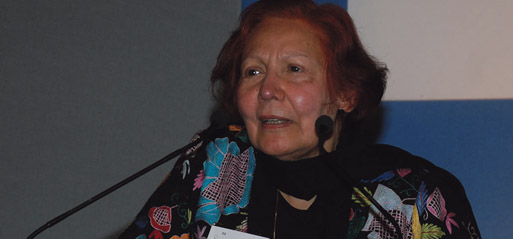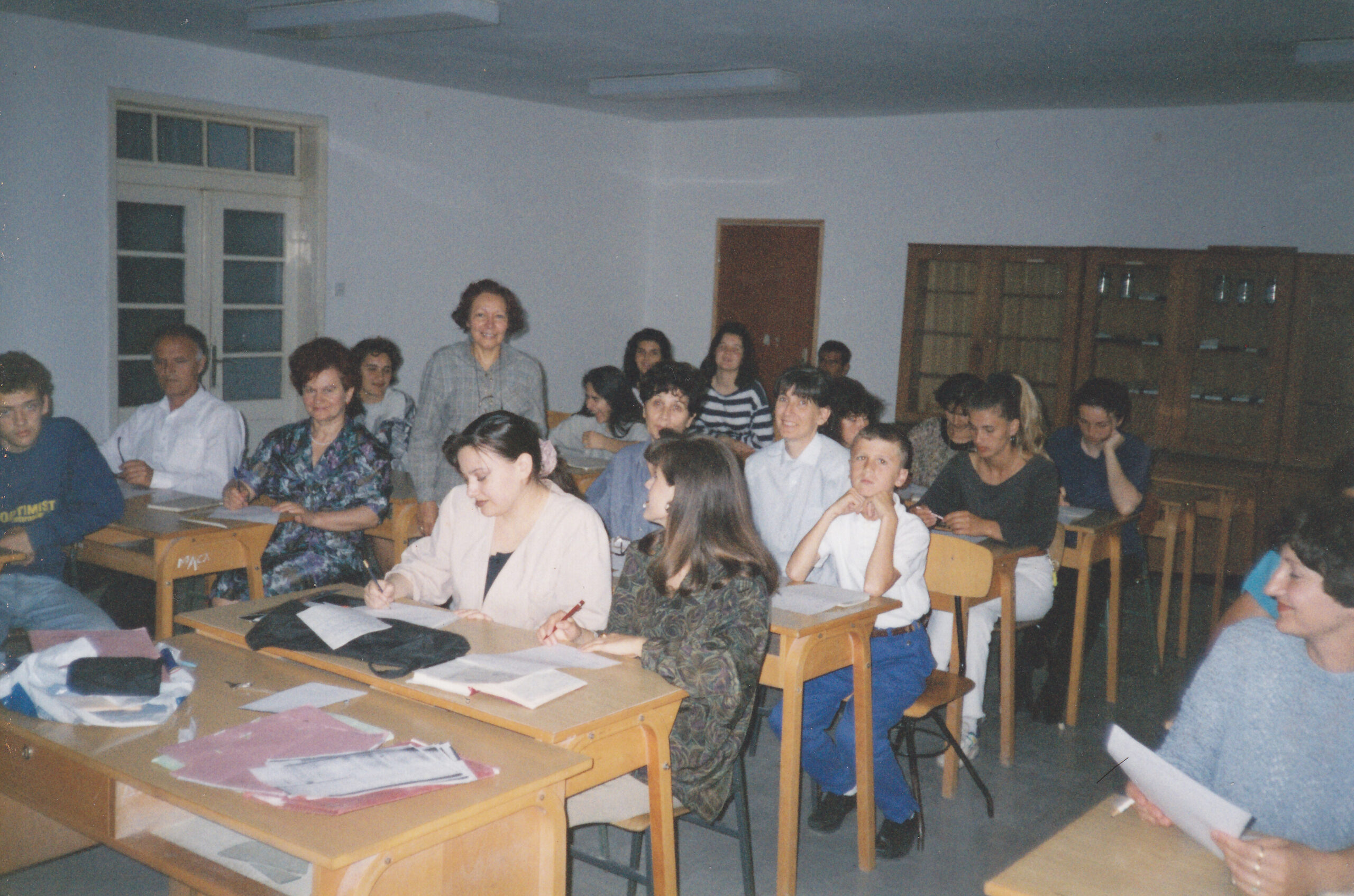
Saida Sherif (1934 – 2023)
Saida Sherif (née Haq), a broadcaster, educationalist, humanitarian, and poet, passed away on March 14 aged 90 in London.
Travelling as a single mother with meagre finances while accompanied by her seven and 11-year-old children, Saida arrived in London from Pakistan on May 29, 1965, determined to provide stability and security for her family.
The quest started rocky when an immigration officer at Heathrow Airport gave her a grilling, but eventually agreed to her admission because her oldest son was already enrolled in a school in the country.
She soon found her feet in a clerical post at the Bank of England in 1967, which allowed her to purchase a semi-detached property in Dollis Hill. She was among the bank’s first ethnic minority female employees, boldly donning a sari to work.
She participated in the staff’s annual flower shows. Dick Balfour, a senior official, once brought her herbal plants from his garden.
She contributed to the BBC’s Eastern Service to supplement the family’s income, penning her Urdu script while on the double-decker bus to Bush House after a day’s work.
Saida was born in the Muslim quarter near Delhi’s Red Fort in 1932.
Her father, Qazi Shamsul Haq, was a poet, civil servant, and music lover adept at the reed organ. Her mother, Razia Begum, came from a line of religious scholars and was educated at a missionary school, where she also worked as a teacher.
They had five sons and a daughter, Saida. It was a time of political tension, and the first school she attended, Jamia Milia in Karol Bagh, was run by pro-independence activists.
Her classmate was the daughter of Zakir Hussain, a future president of India. She learned to use the microphone to address the audience in the school hall and was soon hired for the children’s Sunday programme on All-India Radio, earning five rupees per show. The ethnic cleansing during Partition in 1947 forced the family out of their ancestral home and into a refugee camp, after which they embarked from Bombay to Karachi.
In 1948, she accepted a marriage proposal from a family acquaintance who had recently been demobbed as a junior officer from the British Indian Army. By the end of the year, she was in Switzerland with Muhammad Ansaruddin Sherif, who had been appointed Pakistan’s representative at a UN agency.
In 1951, there was a brief pause in married life when she lived in London with her trainee-engineer brother. She also appeared on the BBC’s In-se-Miliye (Let’s Meet) programme, earning two guineas for 15 minutes. She took a journalism course and worked in Selfridges’ purchase department.
Her husband’s career as a diplomat ended in 1957 and on their return to Karachi, she became the family breadwinner as a ground hostess for Air France and a French teacher at the city’s American School. Economic circumstances were dire, and there were few options but to start a new life in Britain.
Saida took early retirement from the Bank of England on medical grounds in 1979. By that time, she had also dedicated her weekends as a children’s teacher at the Islamic Cultural Centre in Regent’s Park and other community centres.
She enrolled at Willesden College of Technology for a further education teacher’s certificate, which she obtained with credits in 1984. She was an evening college lecturer at Aylestone Community School in Brent. She taught Islam in English at an all-girls school in Jeddah from 1981 to 1983.
This also gave her opportunities to perform Umrah and Hajj pilgrimages.
On her return, there were further part-time assignments, teaching at Harrow College and working as a translator for Harrow Council’s legal department. Passionate about eradicating human suffering and injustices Saida supported Dr Ang Swee Chai’s work in providing relief to survivors of the 1982 Lebanon refugee camps massacres in Sabra and Shatila.
As a volunteer with the British charity ‘Convoy of Mercy’, Saida worked in refugee camps and rehab centres in Croatia and Bosnia & Herzegovina from 1992 –94. Children and adult refugees were welcomed to her English classes, whether Bosniak or Croat. She soon learned Bosnian and was a rare Muslim woman who comforted victims of Serbian sexual violence.

Saida teaching refugee students in Jablanica, Bosnia and Herzegovina, 1994. (Saida’s archives)
She attended the UN briefings held near Split in Croatia to obtain information on roads open for relief convoys which passed on to the Muslim NGOs.
She challenged the authorities for discriminating against Muslim convoys and alerted the UN Protection Force to imminent threats to Bosnian Muslims and their heritage. In June 1995, she was invited to speak at the international conference in Sarajevo, ‘Education for a Culture of Peace’.
Once the conflict ended in December 1996, with the support of the Grand Mufti Mustafa Cerić, she opened nurseries for children in Sarajevo and other towns and taught English to staff in the Ministry of Religious Affairs. The harsh winters and rough-and-ready living conditions took a toll on her health.
These travels included sojourns where she could relax and gather her strength for a few months at her home in London. She was active in the Muslim Women’s Association and served as its religious advisor for some years.
The Urdu Markaz, run by Iftikhar Arif, gave her a forum to present her poetry and form friendships with London’s younger Urdu-speaking literati. She also supported the work of the Muslim Council of Britain, attending several of its AGMs where true to form, she aired her views from the floor.
An enthusiastic traveller, she had a canny way to obtain air miles from Qatar Airways and often visited the schools she had set up in Pakistan.
She was part of the Convoy of Mercy’s relief missions in support of Kosovar refugees in Albania and later involved in projects in Prizren, Kosovo, in 2000 that included the rebuilding of the emergency wing of its hospital.
The following year, she was in Peshawar, working with Afghan refugee children and distributing food aid to their families. In 2005, when a devastating earthquake ravaged northern Pakistan and Azad Kashmir, she worked tirelessly in refugee camps, setting up makeshift schools in remote mountaintop settings.
She travelled to Indonesia and taught in a school in a remote region; she ran children’s classes for Chechen refugees in Baku. She was a keen campaigner for the Palestinian and Chechen causes.
There were happier assignments in a country she came to love, Türkiye, as an English language teacher at Sakarya University from 2007 to 2009. She was also warmly received by family and friends in Doha and Islamabad, where she preferred to spend Ramadan.
These were also working holidays, as she remained busy providing educational advice. In 2013, now eighty years old, she embarked on a journey she had longed for – a visit to Bayt al-Maqdis in Jerusalem.
Saida remained an enthusiastic gardener and adept at DIY, and woe betides the builder who was not up to scratch. She welcomed her children’s friends and hosted many pleasant poetry recitals, musical soirees, and Sufi dhikr gatherings at her home in Willesden Green. For over 20 years, it was the venue of a family-oriented Sunday Qur’anic study circle, first led by Saleem Kayani and then Noureddine Khallouki.
In these, she was an attentive listener, eager to seek enlightenment, and even wheelchair-bound she attended Shaykh Haythem’s Utrujj Retreat in 2019.
By the 2020s, she was a formidable matriarch with ten grandchildren and 11 great-grandchildren. Marked by ill health, her final years were met with fortitude and Qur’an-induced solace. Her unwavering concern for the state of the ummah was now foremost in her prayers. She remained characteristically well-groomed and dressed to the end
The British heritage project ‘Everyday Muslim’ published a blog about her to mark International Women’s Day 2023, aptly entitled ‘Saida Sherif – The Twentieth Century Female Muslim Rebel with a Cause’. News of her death prompted condolences from across the world, as well as fond memories from those whose lives she touched.
Pakistan’s Federation of Business and Professional Women honoured her work with an award ceremony in 2003, and she received Croatia to obtain Iman Wa Amal Award for Excellence in 2007. Her acceptance speech, which recalled an encounter with a young man at Bosnia’s Jablanica Hospital, moved many in the audience to tears.
Her publications include a collection of poetry in Urdu and English, Kasak (2004), and memoirs, Sparks of Fire (Ta-Ha Publishers, 2014).
She was predeceased by her husband, Mohamed Ansaruddin Sherif, who died in 1969. Saida leaves behind her children, Jamil, Jasmine and Ajmal Sherif.
Jamil Sherif